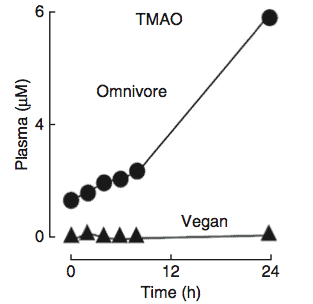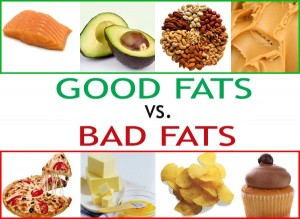What You Need To Know About Coffee, Saturated Fat and Red Meat
If you drink coffee or eat read meat, you need to read this post and take a stand. New studies are creating a stir. Beware red meat, they say. Some health bloggers are hitting back. Come dive into the fray.
 SINCE I started blogging over some three years ago, certain truths in the world of health have been stood on their heads.
SINCE I started blogging over some three years ago, certain truths in the world of health have been stood on their heads.
Sometimes really thorough research challenges long held truths; other times it’s the chorus of bloggers or other opinion-makers who may or not be ahead of the truth curve.
As a health blogger, I can say unabashedly that there are times when I don’t feel like I’m on solid ground. Like many of those voices out there, each seeking a megaphone, there are often more questions than definitive answers for me.
Which brings me to the three seemingly unrelated subjects of this post: Coffee, Saturated Fat and Carnitine.
These three have two things in common:
1. The health benefits of each are vociferously debated; and
2. They’re all connected via some recent studies that have rocked the blogosphere.
The reason you might wish to challenge your views about coffee, saturated fat and carnitine, is that it’s highly likely that you ingest each on a daily basis.
Oh, not carnitine… I don’t eat that, you may be thinking?
Well, if you eat meat (particularly red meat), fish, fowl and the like, you do ingest carnitine, and to a lesser degree with many other foods too.
A warning:
This post is long, perhaps too long.
When it begins to wear you out, by all means take a break, but don’t abandon it, because, presuming you’re interested in health matters, these three hotly debated subjects will find their way to you again, in large part to a:
– Group of scientists;
– “Bulletproof Executive”;
– Blogging acupuncturist;
– Highly influential strength coach;
– Diet movement inspired by the Paleolithic Age; and
– Cast of other characters.
Their views will be explored as I tackle coffee, saturated fat and carnitine by citing arguments for them (“good”) and against (“bad”), by providing links to resources for more information, and weighing into the mix with my own views.
Let’s get started…
Coffee, Good or Bad?
Everyone has tasted coffee, and in many parts of the industrialized world, people drink it daily. Truly, coffee has become a morning meditation and a good reason for meeting up.
Recently, a slate of studies have emerged that say coffee may not be as bad for you as once thought. After all, it gives you a productive buzz, and for some is the single greatest source of antioxidants.
So, what’s the truth about coffee?
Coffee is Bad

Coffee has traditionally been seen as bad for you. Coffee usually contains caffeine, is always acidic, and is often drunk with sugar and cream.
The non-caffeinated variety typically possesses certain chemicals that helped neuter it, and adds to the toxic load present in the bodies of industrialized people.
Not to mention what coffee is doing to you biochemically.
Cortisol is elevated
Drink a cup of coffee at 8:00 AM and your cortisol levels will be elevated till around 10:00 PM. Cortisol is refereed to as the “death hormone” because too much of it over an extended period of time significantly impairs health, even lifespan.
What happens is that cortisol is produced by the adrenal glands in reaction to stress. In effect, the adrenals, through its production of cortisol, is preparing for a fight or flight response. The problem is that if you’re neither fighting nor flying, but instead fuming in traffic or at home battling a teenager, those adrenals can burn out, among other unsavory things.
Cortisol suppresses immune function and increases blood pressure. Insulin is made less effective and sugar levels increase. You start to crave carbohydrates and unhealthy fat builds up in the abdomen. Gastric acid production increases in the stomach. Bone formation, libido, and cognitive function are hampered. Eventually, the adrenal glands can ‘burnout’.
Now this stress thing is a huge topic when it comes to health.
Yes — if chronic — stress can “burn out” (interesting term) the adrenals, as noted, but there’s an even more nefarious possible effect, one that earned Dr. Elizabeth Blackburn a Nobel Prize.
Stress shortens telomeres
What Dr. Blackburn discovered is that chronic stress shortens telomeres!
Since I ended the above sentence with an exclamation point, you may be wondering — if you don’t know about telomeres – why short ones are to be avoided?
Well, you can get all your telomere details here, including a video of Dr. Blackburn explaining it all at Google headquarters, but suffice to say that:
“Telomere length is the marker for longevity – the shorter they become, the shorter your life.” (Source)
If it were true that cortisol creates the biochemistry of stress in the body, wouldn’t you like to know if a daily coffee habit could shorten telomeres?
Stay tuned — that day is coming soon, as a company named Telome Health plans on making a test available for individuals this year.
Dr. Mark Hyman agrees
One of my favorite docs, Dr. Mark Hyman, is in the “coffee is bad” group. In my post, Why Coffee May Be Bad and Good For You, I summarize his “10 Reasons” that coffee is not good for you, which include:
– The cortisol argument cited above;
– It’s addictive;
– Produces higher levesl of triglycerides;
– Creates digestive discomfort, indigestion, heart burn;
– Promotes an elevated urinary excretion of important minerals such as calcium, magnesium and potassium; and
– Etc.
And in what I think is a mighty fine post on HuffPost, Dr. Hyman engages in an online debate with Patricia Fitzgerald about coffee, which you can read here.
All of the above has been, and largely still is, a strong narrative associated with coffee. But a new narrative has emerged, which says: coffee is good for you.
Resources for “Coffee is Bad”:
Ten Reasons to Quit Your Coffee, by Dr. Mark Hyman
The Toxic Effects of Coffee, by the Duke University Medical Center
Cortisol – The Death Hormone, by Dr. Nicholas Perricone
Coffee is Good
The “coffee is good” crowd is a diverse group, medical types and bloggers alike, armed with studies that have begun to disassemble the long-held “truth” that coffee is bad.
Lookie here…
– Dr. Patricia Fitzgerald
In that highly interesting online debate with Dr. Hyman above mentioned, Dr. Patricia Fitzgerald, Health Editor of the Huffington Post, makes the following points about the goodness of coffee, based on certain studies:
– Coffee can lower your risk of several kinds of cancer, including prostate and skin cancer;
– Caffeine in particular may delay the onset of Alzheimer’s and increase longevity;
– Coffee can reduce depression and stroke risk in women; and
– Etc.
– Lee Myer
A Twitter acquaintance of mine, Lee Myer, of Peak Testosterone fame, points out some more pro coffee stuff, citing studies that suggest:
– Coffee may reduce the risk of diabetes;
– The caffeine may help reduce body fat;
– It boosts endurance and, therefore, performance in many exercise and athletic conditions;
– It reduces the incidence of prostrate cancer; and
– Etc.
– Dave Asprey
In this fine camp of coffee drinkers is self-hacker extraordinaire, Dave Asprey of The Bulletproof Executive, who has made his “Bulletproof Coffee” very popular given its great taste (for coffee drinkers) and advertised benefits (supported by cited studies presented on his website).
Dave is pro coffee, but with a clear and definitive twist, which distills down to:
– It must be organic;
– Grown in high elevation;
– Air dried;
– Contain no mycotoxins (basically, mold);
– Be made with coconut oil (or the MCT derivative) and butter (from grass-fed bovines).
Coffee thus created, Dave says, can:
– Improve brain function, memory, and energy levels;
– Provide a great source of antioxidants;
– Fuel your body for half the day;
– Melt the fat away; and
– Etc.
– Cal Mundine, “The Hospitality Guy”
Cal is a young fella that seems to know a lot about coffee. He reached out to me and asked if I’d include his article about the benefits of coffee. His Health Benefits of Coffee is well researched and presented, so take a look to find out the specifics about why coffee may:
-Protect against type 2 diabetes;
-Protect against cardiovascular disease;
-Control Parkinson’s disease symptoms;
-Lower rates of depression;
-Slow the progress of dementia;
-Safeguard the liver;
-Reduce the risks of certain cancers;
-Lower the risk of stroke; and
-Boost concentration and memory.
Resources for “Coffee is Good”:
Bulletproof Coffee Upgrades Your Head, by Dave Asprey
Ten (Really Good) Friggen Reasons to Drink Coffee, by Lee Myer
The Case for Drinking as Much Coffee as You Like, by Linday Abams, The Atlantic
My 2 Cents on Coffee
I’m concerned about coffee’s impact on cortisol levels and therefore I’ll be keeping my consumption at eight ounces per day, with monthly breaks of one week each.
When at a café, I used to add three tablespoons of cream to my coffee, but now it’s four tablespoons of milk. (I admit – I miss the creamer taste of cream, but expect to get used to it, like moving from full fat milk to skim).
Most often, however, the coffee is made at home so I can control the quality, and experiment with “Bulletproof Coffee”.
The Bulletproof Coffee Experiment
Over the past three months, I’ve been experimenting with Dave Asprey’s Bulletproof Coffee.
Kinda.
I did not buy the stuff that Dave sells, but the coffee I use comports to his criteria cited above. And instead of the MCT he and others sell, I’ve simply used the organic, cold pressed coconut oil sold by Trader Joe’s.
I really enjoy the taste, but my body fat has not melted away as Dave said it did for him, and as many of his blog’s commenters say happened for them.
It could be that I do not have that much fat to whittle away, whereas Dave did. Perhaps when what you’re dealing with is 10 pounds as opposed to 100 (the amount Dave lost), the coconut oil butter coffee doesn’t cut it.
It could also be that I didn’t use his exact products, although – and kudos to him for this – Dave does write that one could use substitutes as long as they have the same characteristics as what he sells.
Or it could be that, except for the first few times I made it, I stopped using the butter, as when combined with the coconut oil the resulting brew was just too fatty tasting for my palate; plus I admit that I just couldn’t accept that consuming butter was good.
Yes, saturated fat is good in this Bulletproof Coffee story, which, dear reader, allows a finely tuned segue into the next debatable health topic, the goodness of badass saturated fat.
But, before that, know that one of the most important considerations about whether coffee is a good drink for you is simply to check in and get a sense of how well you metabolize it.
Precision Nutrition’s View: Coffee Metabolization
Brian St. Pierre in his post on PrecisionNutrition.com addresses the coffee metabolization topic nicely. He writes:
“One reason that evidence on the health effects of coffee is so mixed is that people clear caffeine at different rates. Caffeine is broken down and cleared by the liver, and our genetic makeup shapes how quickly and effectively we can do this.
“On one hand, “slow” metabolizers of caffeine don’t process caffeine effectively. These are people who are adversely affected by caffeine, get the jitters, and are wired for up to nine hours after consumption.
“Others just get a boost in energy and alertness for a couple of hours; they are considered “fast” metabolizers of caffeine.”
Surely, it makes sense to determine how well you’re metabolizing coffee. Get the jitters? Can’t sleep at night? Sweat? Yep, drink tea.
Resources for “Nuanced Views” about Coffee:
Is Coffee Good or Bad for Me?, by Dr. Donald Hensrud
Is Coffee Good for You?, by Dr. Andrew Weil
Saturated Fat, Good or Bad?
I’ve tackled fat on this post before.
(Perhaps, that’s why it still clings to me.)
In posts like Eating Fat is Good… Maybe… Could Be… Sometimes, I dive into the differences between fats, and end up saying something like:
“Eat more omega-3 fatty acids (flax seed, hemp seed, chia seed, avocado), some omega-6 (cold pressed, organic olive oil), just a bit of the saturated variety (diary, meat sources) and no transfat (in some processed foods).”
I’d guess that most nutritionist would still support the above assertion, but the new deal on fat says that saturated fat is not the artery plaque builder, heart disease promoter it once was thought to be.
Yeah, maybe this is yet another “health truth” getting stood on its head.
Saturated Fat Is Good
A large part of the “saturated fat is good” crowd is populated by Paleos. 
– The Paleo Diet
No, these are not unfrozen, reconstituted people from the Paleoethic Age, but a growing number of diet-focused people who believe that the best way to eat is the way these pre-agricultural age humans did, which comes down to consuming anything nonhuman (presumably) that walks, swims or flies, veggies, fruits, nuts and seeds.
Now, those on the Paleo Diet extol the benefits of saturated fat, such as our before-mentioned Bulletproof Exec., Dave Asprey. They cite studies that say the role saturated fat plays in clogged arteries and heart disease is overblown, and/or just plain wrong.
Further, they stress that saturated fat actually helps bump up those pesky testosterone and other sex hormone levels that seep down to emasculating levels as men age (and women too, a bit).
– Mike Mahler
As an aside, know that another one of my Twitter acquaintances, Mike Mahler of AggressiveStrength.com, has written a series of in-depth posts about hormone optimization, and right here, somewhere in the middle of the post, he dives into this saturated fat story.
Note: rather than meat grizzle or butter, the saturated fat that he –and many others – advocates is coconut oil. That’s because the saturated fat in coconut oil is a medium chain triglyceride, which the body uses as fuel more easily than the typical long chain saturated fat.
As mentioned, I was convinced enough about coconut oil to experiment with my version of Bulletproof Coffee, but always had this uneasy thought that I was messing with my very good cholesterol numbers.
So I looked for dissenting opinions that could perhaps convince me to stop bathing in coconut oil, metaphorically speaking (although that’s probably good for your skin).
Such views are abundant.
Resources for “Saturated Fat is Good”:
In Defense of Saturated Fat, by Charles Poliquin
What If Bad Fat Is Actually Good For You?, by Nina Teicholz, Men’s Health
Hacking Your Heart and Preventing Diabetes, by Dr. Rocky Patel and Dave Asprey
Saturated Fat is Bad
Less than one mile away from my home in Sausalito sits Dr. Dean Ornish’s Preventive Medicine Research Institute. Dr. Ornish has become a pretty famous guy, particularly in health circles because, among other things, he has generated a lot of data.
Dr. Ornish is known for using a low fat diet to reverse coronary artery disease and other chronic conditions. His research has included tens of thousands of individuals that have followed his diet protocols, and the results are hard to debate.
But debated they are!
Dr. Ornish has become the whipping boy for the “saturated fat is good” crowd. When I read some of the vitriol hurled about, I’m reminded of how personal is one’s diet, and that people become very committed to their way of eating.
Try to tell a Crossfit advocate, many of whom have adopted the Paleo diet, that the new glistening muscles for which they toiled so hard are being improperly fueled by meat and saturated fat.
Or suggest to the legions of new Bulletproof Coffee adherents that the body fat they’re losing by consuming butter and coconut oil blended into their coffee may come at the high price of heart disease, eventually.
And what about that guy who plops down in front of his sizzling sirloin, drool forming at the edge of his mouth, eyes ablaze, knife and fork clutched in his hands – tell him that his frequent steak eating is gonna mess with his health.
Well, that’s what Dean Ornish does, kinda.
He keeps churning out these studies that basically assert that high fat diets, particularly of the saturated fat variant, do the body harm.
In response, angry words get hurled his way with sufficient vigor that Dr. Ornish has been compelled to push back in great detail, such as here where he asserts, among other things, that:
– People who reduced dietary fat to 10% of calories reversed their coronary heart disease;
– Those on his low fat diet experienced 2½ times fewer cardiac events such as heart attacks, bypass surgery operations, angioplasties, and hospital admissions.
– It’s important not to tell people what they may want to hear—“meat and butter are good for your heart”—when the science does not support it. (Source)
Other well-known medical doctors wary about saturated fat are Dr. Mehmet Oz and Dr. Bill Salt, who in response to a question about the dangers of eating saturated fats, write what follows.
– Dr. Oz:
“Eating too much saturated fat can raise your level of LDL (bad) cholesterol and increase your risk for heart disease. LDL cholesterol plays several important roles in the body, but particles of it can build up in the blood and attach to the walls of arteries.
“Over time, LDL cholesterol and other substances can form blockages that lead to heart attacks and other serious health threats. You can cut back on your consumption of saturated fat by limiting your intake of fatty meats, whole milk, butter, cheese, ice cream, cakes and cookies.” (Source)
– Dr. Salt:
“The more saturated fat you consume, the greater your risk of developing high cholesterol, heart attack, stroke, circulation problems and certain types of cancer (like colon cancer).
“Furthermore, there are more calories in each gram of saturated fat (9 calories) than there are in each gram of protein (4 calories) or carbohydrate (4 calories). If you eat fatty foods, you are more likely to have a weight problem.
“Limit saturated fat intake by eating fewer fried foods (most fast foods), butter, cream, cheese, other full-fat dairy products, unskinned chicken, fatty meats and products made with palm and coconut oil”. (Source)
As long as we’re talking about digesting saturated fat, there’s one more thing to digest on this topic, and that’s “my 2 cents”, up next.
Resources for “Saturated Fat is Bad”:
Reply to TierneyLab, The New York Times, by Dr. Ornish.
What Are The Risks of Eating Saturated Fat?, by Drs. Mehmet Oz, Dr. Michael Rosen and others.
My 2 Cents About Saturated Fat
I’m punting.
I’ve looked askance at the claims that saturated fat was OK, but my resolve was beginning to weaken by Dave Asprey’s views and associated data, and then one knee fell to the floor when I recently read something that Dr. Andrew Weil wrote.
– Dr. Andrew Weil
He said:
“… my thinking on saturated fat has evolved. One catalyst was a scientific analysis of 21 earlier studies, which showed “no significant evidence” that saturated fat in the diet is associated with an increased risk of coronary heart disease.
“The 21 studies analyzed included nearly 348,000 participants, most of whom were healthy when they were enrolled. They were followed for five to 23 years, during which 11,000 developed heart disease or had a stroke.
“Looking back at the dietary information collected from these thousands of participants, the investigators found no difference in the risk of coronary heart disease, stroke, or coronary vascular disease between those individuals with the lowest and highest intakes of saturated fat.
“This goes completely against the conventional medical wisdom of the past 40 years. It now appears that many studies used to support the low-fat recommendation had serious flaws.” (Source)
Note that one important characteristic of the studies that Dr. Weil references above is that the participants were “healthy”.
– The Two Important Distinctions
From what I can gather, there are two important distinctions when this pro or neutral data is compared to that generated by Dr. Ornish’s work:
1. Although he’s done many studies, it seems that participants in some of Dr. Ornish’s diet were prone to or had some measure of heart disease when they began the study that then was ameliorated or erased by adhering to his low fat diet.
2. The Paleo adherents, and people like Dave Asprey, underscore the importance of the source of the saturated fat; that it must be from healthy grass-fed animals, whether the end product is meat or diary.
Thus, could it be that if healthy saturated fat eaters eating healthy, grass fed saturated fat (in effect) were compared to Dr. Ornish’s (and other) low-fat diets, the outcomes would be similar?
– How Fat Figures In My Current “Diet”
Right now, I’m experimenting with a low carb, medium fat, and medium protein diet.
I’m convinced that carbohydrates are the most pernicious of the macronutrients, and since I’m not a long-distance type athlete or exerciser, I’m currently limiting them.
Since the early 1970s when they become so refined and put into nearly all manufactured food (often as high fructose corn syrup), Americans have gotten fatter, as these graphs clearly reveal.
Pulitzer Prize-winning New York Times investigative reporter Michael Moss concurs, and finely describes the slick methods used by manufactures to hook consumers in the post, Are You A Bit Addicted to the Holy Trinity of Salt, Sugar and Fat.
I’ve eliminated nearly all the simple, non-complex carbs in my diet, such as bread, pasta, white rice and white potatoes. (Sweet potatoes are fine.)
To make up for the calories, and to experiment with training my body to more efficiently utilize fat as fuel, I’m consuming more fat, but mostly it’s of the omega-3 fatty acid variety, such as fish oil, seeds, nuts and avocado.
The daily target of total fat is 83 grams, 747 calories (9×83), which is 35% of the 2140 calories I’ve estimated I need to consume in order to lose about one pound of body fat per week.
Due to the Bulletproof Coffee experiment I’m doing, much more of this 83 grams of fat ingested is coming from saturated fat then is normal for me. Typically, the only saturated fat I consume comes from high quality organic yoghurt, kefer and cottage cheese, amounting to between 10 and 20 grams per day.
I’m now ingesting 14 grams of saturated fat from just one-tablespoon of coconut oil in my coffee. (Blended of course.)
Frankly, besides the fact that it tastes good, and does give me sustained energy* for a good part of the day, I remain leery about this new coffee regimen, as I’m unclear about what it may be do to my cholesterol levels.
(*Note: could be that this sustained energy could also be due to, in part, my morning ingestion of 30 grams of protein within the first 30 minutes of awakening, as popularized by Tim Ferriss.)
In addition to Bulletproof Coffee, the other fat taking regimen that I’m on is described below when we get to “carnitine”, but suffice to say here that I’m also guzzling 16 grams of fish oil, added to the other omega-3 fatty acids taken each day.
So, here are the fat numbers:
– Saturated Fat Grams – 14 (coconut oil) + 10 (eggs) + 15 (avg. diary) = 39.
– Omega-6 Fatty Acids – 12 (olive oil).
– Omega-3 Fatty Acids – 32 (avocados, almonds, Brazil nuts, flax seeds and sunflower seeds).
Total = 83 grams/day
This puts my consumption of saturated fat at nearly half of my entire fat consumption. Given that I’m not sold on the benevolence of saturated fat, this worries me some.
As an aside, know that I recognize I may need more protein to get better results from my resistance training (HIIT, weightlifting and calisthenics), but find this challenging, as I’ve lost my taste for red meat – particularly after reading what you’re about to – and am losing it for chicken. This leaves fish, some low-protein vegetable sources and protein powder supplementation.
(There will be more about this in subsequent posts, but for now read How To Measure Your Metabolic Rate.)
– Get Tested
My last thought here on saturated fat concerns testing. You simply can’t be sure about what’s going on inside you without getting tested.
Given some symptoms I was experiencing some months ago, I decided to get a full Male Comprehensive Hormone Panel provided by the Life Extension Foundation, and discovered that I had low testosterone numbers – completely unsurprising for a middle aged man (not that I’m admitting I am).
(You can read this story here.)
The blood test I had done included measurement of HDL (the so-called “good cholesterol”), LDL (the so-called “bad cholesterol”) and triglycerides.
These were my numbers:
| Total Cholesterol: 162 | Less than 200 is desirable. (Source) |
| HDL: 51 | 60 and above is optimal. (Source) |
| LDL: 97 | Less than 100 is optimal. (Source) |
| Triglycerides: 71 | Less than 150 is normal. (Source) |
| Cholesterol Ratio: 3.2-to-1 | Good is 5-to-1; optimal 3.5-to-1 (Source) |
| Triglycerides/HDL: 1.4 | Ideal is 2 or less. (Source) |
As you can see from the above table, my cholesterol and triglyceride numbers are very good, and I want them to remain that way.
Given my recent consumption of coconut oil, a “good” saturated fat, but one nonetheless, I will want to soon get tested again, and so should you.
UPDATE: A friend of mine just said, “BTW, you say “get tested” but tested for what? Lipids panel? I want a TMAO test.” OK, the good news is that the Life Extension Foundation is having a sale on several blood tests. (“Life Extension Annual Blood Test Sale – Members Save Up To 50%”) Check out the Male and Female “Comprehensive Hormone Panel”, the “VAP” test, and the “Mitochondrial Function Panel”, which does check carnitine levels but I don’t know if you can make any assumptions from such results regarding your body’s TMAO levels. The bad news is that I don’t know any TMAO test currently available to the public, as yet.
Resources for “Nuanced Views” about Saturated Fat:
Why Cholesterol May Not Be the Cause Of Health Disease, by Dr. Mark Hyman
Rethinking Saturated Fat, by Dr. Andrew Weil
Carnitine, Good or Bad?
And now, finally, with carnitine we get to connective tissue between coffee, saturated fat and, well, carnitine.
Recently, the New York Times, Forbes and other news outlets reviewed some studies which assert that eating red meat may be worse than originally thought in line with the established conviction that saturated fat makes cholesterol that clogs arteries, etc.
The new culprit, the studies said, was carnitine, a compound prevalent in meat and biosynthesized from two amino acids.
Carnitine is a very popular supplement among athletes because it “transports” fat into cells’ mitochondrial, which there become “fuel” for the body. The idea is to make the body use fat calories as fuel rather than the jiggly stuff.
I use it.
Yep, guru strength coach, Charles Poliqin turned me on to it via several blog posts and videos, one featuring Dr. Mark Houston, who uses carnitine in combination with fish oil as a weight loss protocol for overweight patients in his clinic.
Poliqin and Houston convinced me. I’m taking a smaller portion of the amounts of carnitine and fish oil that Dr. Houston administers to his overweight patients, but I’m nonetheless invested in this carnitine debate, and a debate is what it’s becoming!
That’s because those aforementioned studies say that something called Trimethylamine N-oxide (“TMAO”) is created by a particular type of gut bacteria when digesting the carnitine in red meat; a bacteria present in meat eaters, but not vegetarians.
TMAO is a common organic compound found in animals, and is thought to increase the risk of heart disease ten times greater than cholesterol, which, as mentioned, has traditionally been thought to be created by saturated fats, a contention that is now hotly debated.
The carnitine in this carnitine-created TMAO is found in high concentrations of red meat, some energy drinks, and some dietary supplements.
The Nexus
So, what we have so far is this:
1. The scientists conducting the studies are concerned that carnitine, when digested by certain kind of bacteria in the gut, create TMAO, a bad news precursor for heart disease.
2. This certain kind of bacteria is most prevalent in the guts of meat eaters, they say.
3. Paleo and Bulletproof Coffee adherents believe that there’s nothing wrong with eating meat and saturated fat, so these studies are in conflict with their beliefs, lifestyle and the countervailing studies they cite.
Therein lies the fuel for the debate.
Let’s next get into what two news outlets reported about these carnitine/TMAO studies, and how the Paleo and Bulletproof camps have responded.
I’ll tell you before hand that no definitive conclusion has been reached as yet.
The Carnitine/TMAO Studies
++++++++
UPDATE: Subsequent studies took a look at choline (a substance similar to B vitamins) and found an effect on TMAO production very similar to carnitine. This video tells the tale and sets up the rest of the commentary in this section:
+++++++++
For easier digestion, I’m going to list the points made by two news outlets reporting on the carnitine/TMAO studies, and then present countervailing arguments, and then add “My 2 Cents”. 
In the article, Culprit in Heart Disease Goes Beyond Meat’s Fat, the New York Times article reported:
1. Dr. Stanley Hazen of the Cleveland Clinic, and colleagues “grilled” eight-ounce steaks and gave one to each of six men and women, five of whom were regular meat eaters, one who was a vegan and had not eaten meat for a year.
2. TMAO, a predictor of heart attack risk, was found in the five meat eaters only, and “…virtually no TMAO appeared in the vegan’s blood.”
3. Additional studies with 23 vegetarians/vegans and 51 meat eaters demonstrated that the meat eaters had more TMAO in their blood, whether eating meat or consuming carnitine in supplement form.
4. To test if it was the bacteria particular to meat eaters was metabolizing carnitine, and thus creating TMAO, antibiotics were given participants, which wiped out most of their gut bacteria. They were subsequently tested and TMAO was no longer in their blood after eating meat or carnitine. The conclusion was that it’s the gut bacteria in meat eaters that cause the TMAO.
5. Researchers then tested people that had high blood carnitine or TMAO levels to see if they were at higher heart disease risk. They analyzed blood from more than 2,500 people and discovered that they were at higher risk, and that the effect was solely because of TMAO, not carnitine itself.
6. Based on this work, these researchers believe “that TMAO enables cholesterol to get into artery walls and also prevents the body from excreting excess cholesterol”.
7. From his work at the Cleveland Clinic, Dr. Hazen found 10,000 people at risk for heart disease had TMAO in the blood that was traced to carnitine molecules metabolized by intestinal bacteria.
Now let’s turn to some additional information about the same study provided by an article on Cleveland.com entitled, Compound in red meat, energy drinks linked to heart disease in Cleveland Clinic research:
8. TMAO has “proved to be a 10-fold stronger predictor of heart disease than cholesterol”.
9. Although the “connection between a diet high in red meat and heart disease is well established, the association can’t be entirely explained by the amount of cholesterol and fat in the foods”, but now “seems to account for some of that unexplained risk”, said Dr. Hazen.
10. “’Chronic dietary pattern has a real profound effect on the intestinal flora composition and your ability to make TMAO,’ Hazen said. Vegans and vegetarians seem to lack the microbes necessary to break down the carnitine, which may help explain the heart-protective benefit of such a diet. “
The Counter Arguments
Dave Asprey and Chris Kresser have written post at their respective websites that rebut the findings of these Carnitine/TMAO studies.
You’ve been introduced to Dave Asprey.
Chris Kresser is an acupuncturist who writes a Paleo-centric blog at ChrisKresser.com. Both these guys are smart, well informed and committed to Paleo and its underlying precepts, two of which are:
– Meat is good (although quality matters); and
– Saturated fat is OK (maybe even good, and quality matters).
No Paleo worth his salt (which isn’t advocated) is going to let these Carnitine/TMAO studies float by without some pushback.
– Dave Asprey’s Counter Argument
This is a difficult topic to fairly represent, especially since the science here is new, so I hope you go read Dave’s counter argument in full: The Red Meat Scapegoat: The New York Times, Carnitine, Heart Disease and Science.
As I glean it, he says:
1. The TMAO effect is a “gut biome issue, NOT a meat issue”.
2. The meat used in the studies was not grass-fed, non-antibiotic, etc.
3. The meat was seared during cooking, which creates nitrosamine, which forms a toxic substance that’s part of TMAO biochemistry.
4. Certain substances in vegetable byproducts “also form TMAO when digested by certain bacteria in the gut”.
5. It’s not a problem if TMAO enables cholesterol to get into arteries and/or prevents it from excreting excess cholesterol because cholesterol is not harmful.
– Chris Kresser’s Counter Argument
UPDATE: Chris posted a compilation of articles and blog posts in support of red meat eating and against the TMAO conclusions of the studies herein evaluated. There’s lots here so buckle up and have a good read. And as you do so try to be aware of any biases held by the writers, as it appears that several are dyed-in-the-wool Paleo red meat connoisseurs and would thereby resist information that conflicts with this lifestyle.
In his post, Red Meat and TMAO: Cause for Concern, or Another Red Herring?, Chris Kresser begins his counter argument by underscoring his distain for the long-held, but erroneous (in his view) conviction that “eating cholesterol and saturated fat increase cholesterol levels in the blood, and high cholesterol levels in the blood cause heart disease”.
He suggests that some of the thinking that lead to the above-cited erroneous causality is present in the creatine/TMAO studies, and then launches into three reasons he thinks the studies are flawed:
1. The evidence is inconsistent because if elevated TMAO levels are the heart disease culprit, “we’d expect to see higher rates of heart disease in people that eat more red meat”, and lower rates in vegetarians, neither of which is true. (Older studies showing lower rates in vegetarians were later disproven, he says.)
2. Meat eaters may have more unhealthy habits than vegetarians, and this was not controlled for in the studies. Such habits could “have been associated with undesirable changes in the gut microbiota.”
3. The evidence linking TMAO to red meat consumption and to heart disease is inconclusive because of the inadequate sample size of one vegetarian, and a mouse study based on them ingesting a carnitine supplement, not the red meat that contains it.
My 2 Cents About Carnitine/TMAO 
Whew, well if you’re still with me, you’re a masochist.
– Dave Asprey’s Points Reviewed
I think that Dave Asprey makes a good point about the quality of the meat used in the studies (#2), as it’s easy to accept that animals fed food already adulterated with mycotoxins and other unsavory stuff might have a negative effect on gut bacteria.
What I don’t get is why he contends that this is a “gut biome issue, NOT a meat issue” (#1), as the studies hypothesize that that gut biome makeup is directly influenced by red meat consumption (#2, #4 of “The Carnitine/TMAO Studies”), given that vegetarians were shown to have a different gut biome makeup (#10).
The argument that the “meat was seared” (#3) might have merit if searing meant the meat was charred, but nothing I’ve read suggested that is was charred.
Dave’s “cholesterol is not harmful” argument (#5) does take some the wind out of these studies, but that TMAO is reportedly a 10-fold stronger predictor of heart disease than cholesterol (#8 of The Carnitine/TMAO Studies) seems to make this moot.
And, finally, that TMAO is found in vegetable by products is not in dispute, but rather the amount and concentration that are present in red meat eaters.
– Chris Kresser’s Points Reviewed
Chris’ first point is news to me (#1) – that vegetarians actually don’t have a lower incidence of heart disease – but I’ll give him that, as he says the recent studies support that contention.
It could be that his assertion that meat eaters may generally be less healthy than vegetarians and thereby have gut microbes that make TMAO makes sense as well.
It would have been interesting to see what would happen if the scientist reintroduced meat to the meat eaters after their gut bacteria was wiped out with antibiotics to see if –starting from scratch, if you will – they would then produce the very same types of bacteria that produced the TMAO.
Chris Kresser’s final point (#3) is the one that I don’t buy.
The studies’ conclusions were not predicated on the gut biome of one vegetarian. One study used 23 vegetarians (#3 of The Carnitine/TMAO Studies), and a Cleveland Clinic study (#7) used 10,000 with high TMAO test results.
In the accounts I read, the Cleveland Clinic study of 10,000 individuals was not expressly reported to have studied meat eaters exclusively, but they did have the meat eater profile given that they had TMAO in the blood traced to carnitine molecules metabolized by intestinal bacteria.
– Here’s What I’m Going Do
Until more information arises, I’m going to maintain my carnintine + fish oil regimen.
It doesn’t seem that this is particularly risky for me because I rarely eat red meat, and so am hoping that my gut bacteria colony doesn’t metabolize TMAO from carnitine.
Plus, I’m going to soon get another blood test to check on testosterone and cholesterol levels.
For those of you committed to meat eating, it may be helpful to know that Dr. Hazen, the lead scientist of a couple of the studies here examined, still intends to eat red meat, but reduce consumption to once every two weeks, and no more than four to six ounces per serving.
My big RED FLAG gets waved to the red meat eaters supplementing with carnitine. Do yourself a favor and get your blood tested.
Resources for “Carnitine is Good/Bad:
Right now, virtually all the pro and con views on carnitine were established before these new studies, so I’ll not link to some assortment of them here. Let’s wait a few months and see how views shift around.
Your Takeaway
Coffee
I’m on board my particular version of Dave Asprey’s Bulletproof Coffee train for now (although I’m in the caboose), but will want to be tested for cholesterol due to the coconut oil simply because it’s hard to jettison old, ingrained indoctrination.
And I am a health blogger, of sorts, so we gotta figure these thing out.
However…
Less is more for me when it comes to coffee, cause the cortisol argument is solid and I’m happy with switching to green tea after my first cup of joe.
For you, my recommendation is that you check in and figure out how well you metabolize coffee, given the very solid reasons stated above by Brian St. Pierre of Precision Nutrition.
I’ll end my “conclusions” on coffee with something Mike Mahler of Aggressive Strength said when he wrote something like, If you hafta have it, don’t use it.
Saturated Fat
I already tipped my hat on this one in my first sentence in this “conclusions” section.
Yeah, I get it that coconut oil is a better saturated fat than cheese, but the Paleos don’t seem to care much, as all saturated fats are fine.
I still care, and, again, will monitor my saturated fat intake and get my blood tested.
My recommendation to you is to be modest with your saturated fat intake and monitor your cholesterol numbers. But most importantly – make sure the sources of your animal fats come from animals that were grass-fed with no hormones or antibiotics added.
Carnitine
The studies cited in this post would make me concerned if I both ate red meat and supplemented with carnitine.
I’d be more than concerned if the red meat I ate was not healthy, grass-fed, etc., and I did little to no exercise.
If you’re that person, get some blood work.
As a non red meat eater, I feel (nearly) comfortable enough to stick to my carnitine supplementation for a while, but I plane to get some blood work done soon.
And so I say onto you – at last – over and out.
Yep.
P.S. I must have pushed some buttons with the views expressed in this post, so don’t hold back — express yourself in the Comments section below.
Last Updated on April 11, 2023 by Joe Garma






